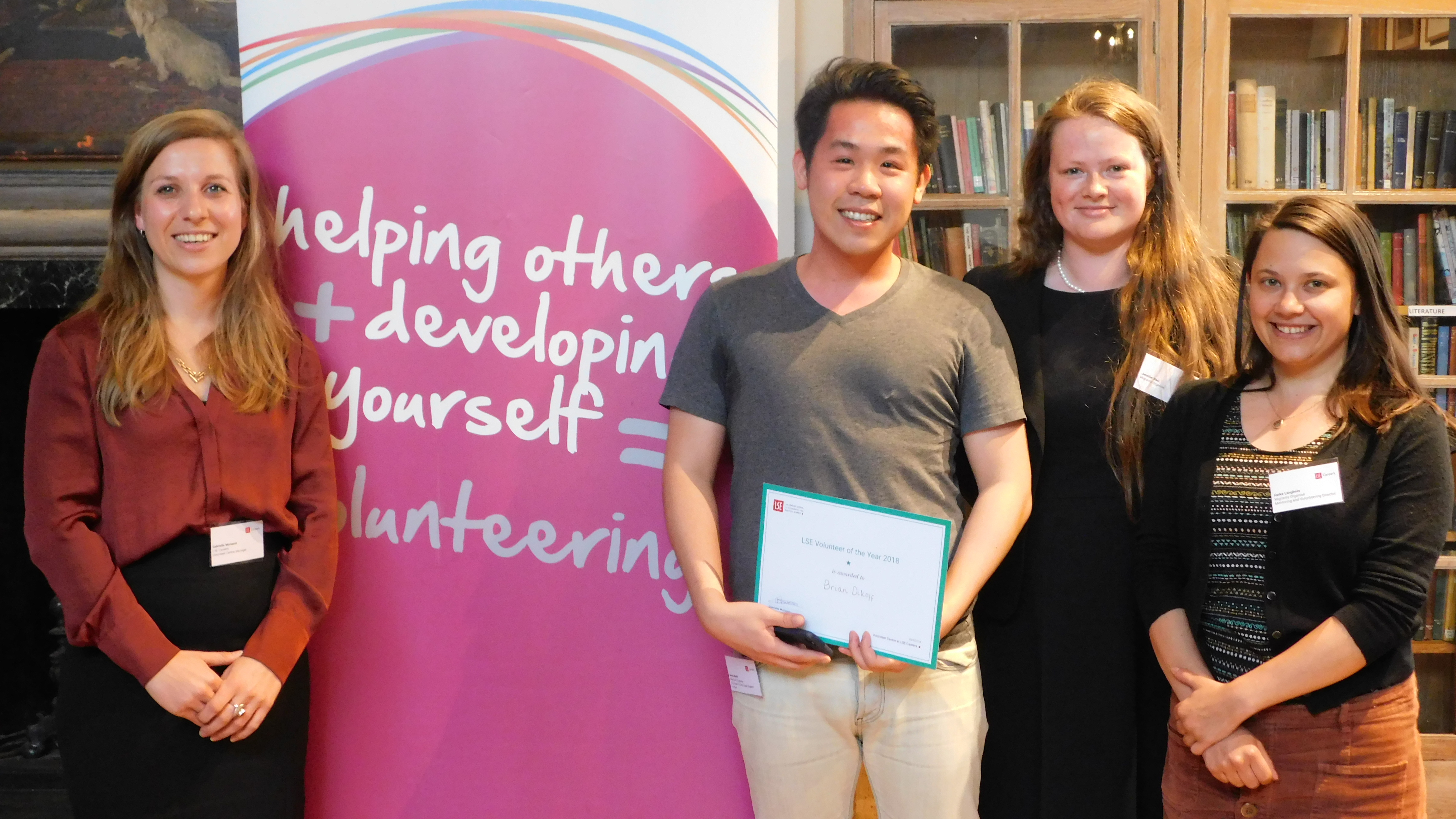Volunteering is good for you in so many different ways. We know that it can have a positive impact on wellbeing and our own research shows that students are more likely to feel part of LSE if they volunteer. But we also know how volunteering can improve your chances of getting a paid job!
- 1. Know what job you want
Volunteering offers the chance to test out what interests you. This could be getting experience in a particular sector or industry but it could also be more general than that. For example, perhaps you like the idea of working for large international organisation but find that when you’re there, it isn’t for you and somewhere smaller scale would fit you better.
It helps you learn what you like and what you don’t in working environments too. And once you’ve figured out what makes you ‘tick’, you can hone your voluntary experience to gain some real life experience in those sectors. Having a clearer idea of exactly what sort of job you’re looking for will allow you to be more discerning in your job search and it’ll also help you back up answers in interviews with specific examples of why you want a particular job.
2. Build skills and learn new ones
Volunteering is a great way to apply your classroom learnings in the ‘real world’. It can also be an excellent way to fill any skills gaps you may have. Most good organisations recruiting volunteers will recognise enthusiasm in a potential volunteer and may well be willing to train you. This could help fill key CV gaps, such as working with databases, managing social media accounts, or working with key stakeholders.
Aside from concrete ‘hard’ skills that volunteering can give you, it can develop your soft skills too. Depending on the type of volunteering you undertake, it could demonstrate your ability to work well alongside wide cross sections of the community – showcasing a whole host of skills from interpersonal, communication, and even empathy, that future employers will value.
3. Building relationships and making connections
University can be a place where you meet people who are similar in age or background to you but volunteering is a bit different. It can be a good way to escape the university ‘bubble’, as well as a chance to make some great friends. The people you meet through volunteering can also offer valuable career related insights.
Volunteering in the sector you’re hoping to work in is a brilliant way of making connections. As a volunteer you may be invited to events or have the opportunity to talk informally to employees within the organisation about how they got to where they are now. It may also give you the ‘inside scoop’ on upcoming recruitment. You never know, your volunteer manager may even end up being on the other side of the interview panel in the coming years or months.
4. Get some great references
After a sustained period of volunteering, your volunteer manager may well be happy to provide you with a reference. This can be especially useful if you’ve not yet had a full-time job, or if most of your references are currently academic. Employers often value a combination of academic and professional references. It’s worth noting that usually an organisation will expect you to have contributed a reasonable number of hours over a sustained time before they can recommend your skills and commitment.
5. A happier, healthier candidate
Studying and job searching can be stressful but volunteering can help you keep track of the bigger picture as it can be a great way to relax between writing applications. Going into interviews with a happier, healthier you is only going to be beneficial to your prospects.
Volunteering also demonstrates to your potential employer that you’re community minded, generous with your time, and ready for a challenge. Employee volunteering is on the rise, which demonstrates that more organisations are becoming aware of the benefits in volunteering and therefore should value an engaged volunteer as a potential candidate.
Volunteering at LSE
To learn more about volunteering at LSE visit the Volunteer Centre website, and to find local and overseas opportunities, check out CareerHub. If you’d like to volunteer but you’re not sure what to do, then book a one-to-one appointment with our Volunteer Centre Manager to talk things over, by emailing volunteer@lse.ac.uk.





